Are Cracks In A Garage Floor Normal? (Find Out Now!)

A crack in any concrete surface can be concerning, especially if the cracks seem to appear overnight. Many homeowners, particularly those in a newly constructed house, will start to notice cracks appearing in the garage floor after about a year. While these cracks are concerning, usually, there is no need to be worried.
Some garage floor cracks, like shrinkage cracks and settlement cracks, are normal, especially in newly constructed homes. These cracks are often less than ⅛ of an inch wide and will not impact the structural integrity of your home. However, wide cracks or uneven cracks may indicate a more significant problem with your home’s foundation.
Many surface cracks can be repaired with a simple concrete compound or crack filler. If you notice cracks that are wider than ¼ inch, or you notice cracks that coincide with other structural concerns, it may be time to call a structural engineer to examine your home. Although some garage floor cracks are entirely normal, other cracks may indicate a more significant problem.
Do You Need Concrete, Brick, or Stone Pros?
Get free, zero-commitment quotes from pro contractors near you.

What Kind of Cracks Exist in Garage Floors?
Not every crack in your garage floor is terrible, and many cracks have a perfectly logical explanation for their formation. Understanding the different types of cracks that can appear in concrete can help give you peace of mind and a better understanding of what is happening with your garage floor. Some common types of cracks include:
- Shrinkage Cracks – Once your garage floor is poured, the liquid concrete starts to harden. Usually, during this process, the concrete will shrink slightly. About ⅛ of an inch of shrinkage is normal around each side. When this happens, small cracks can start to appear in the concrete. These are entirely normal and do not cause any concern.
- Settlement Cracks – Usually, the foundation will start to settle in a newly built home in the first two years. When this happens, the weight distributed across the garage floor will shit, causing small cracks to form. Small settlement cracks are completely normal.
- Construction Cracks – Sometimes, construction workers building your house will take some shortcuts to speed up the construction process. They will start to frame the house as soon as the foundation is poured. Unfortunately, the slab needs time to dry and cure before heavy equipment can be placed on the concrete. Usually, this happens after 28 days. Unfortunately, though, a construction crew will usually wait about five days before moving heavy loads onto your cement which can cause construction cracks to form.
- Crazing Cracks – A crazing crack is a skinny, almost hairline crack that will form an irregular pattern on the surface of your concrete. These cracks are incredibly shallow and will often create hexagonal patterns. Because these cracks are only about ⅛ of an inch deep, there is no cause for concern when it comes to the structural integrity of your home. These cracks form when there is improper troweling when the concrete is being poured.
Can a Poor Installation Cause Cracking?
Unfortunately, sometimes a poor concrete installation can lead to cracking in your garage floor. In this case, the original construction is to blame. Sometimes the slab is simply poured too thin, or rebar reinforcement was not used when it should have been. Some poor installation problems can lead to a cracking garage floor, including:
- Using the wrong base or placing the concrete on uneven or disturbed soil
- Too low MPA of concrete
- Not using enough gravel as a suitable base
Luckily, many of these installation mistakes are minor and will not impact the structural integrity of your garage floor or your home’s structure. Keep an eye out for wide floor cracks, and be sure to repair minor cracks with compound or crack filler to keep your garage floor looking good.
When Should I Be Concerned About a Crack?
Your garage floor may have several small cracks throughout the concrete, which can be concerning. Determining what a structural crack is can be difficult to differentiate. Have peace of mind knowing that many small cracks in the garage floor are completely normal. In general, if the crack is no bigger than ⅛ of an inch wide, you should have nothing to worry about.
Also, pay attention to how level the crack is. Both sides of the crack should be parallel to one another. If one side of the crack is higher than the other, and the width of the crack is bigger than ⅛ of an inch, you may have an issue with a severe settlement.
Related Guide: Garage Floor Cracked And Is Sinking?
How Do I Know If I Have Structural Damage?
While some cracks in the garage floor are simply settlement cracks, other larger cracks may be more concerning. Particularly wide cracks or cracks that appear on one side and not the other side of your garage may indicate that there is a more significant problem with your house settling or with an unstable foundation.
Determining when a crack is more than just a simple annoyance can be tricky, though. In general, you will want to look at other compounding factors that may occur alongside large cracks in your garage floor. Some key features to look for include:
- The floors inside your house may start to slope. Sloping floors could be a sign that your home is moving, and there may be a problem with the foundation.
- Doors and windows suddenly become hard to open or shut, or doors may swing open independently. As the house settles quickly, doors and windows can become off-balanced.
- Look for areas of the foundation that may be bowing or leaning in toward the house. There may be visible cracking on the foundation walls.
- The roof may start to slope or sag to one side or the other as a house is settling.
- Look for potential cracks in the drywall or the siding.
- Follow the large cracks in the garage floor and see if they continue up the foundation wall. If the crack is continuous, it could signify that the house has a larger issue with the foundation.
If you begin to notice other telling signs that accompany worrisome floor cracks in your garage floor, it may be time to call a structural engineer to take a closer look at your house and its foundation. Having a solid house on a good foundation is the key to a safe home.
Can You Fix Cracks In Concrete Floors?
It is possible to fix small cracks in your concrete floor, especially in the garage. To fill larger cracks, the best option is to use a concrete resurfacing mixture. This concrete compound will help fill the crack and smooth out the top surface of the garage floor.
To get a finished look, you will want to use a rubber floor squeegee. This tool will help you evenly apply the compound and ensure it fills the gaps. Be sure to feather the patch’s edges to make the compound blend seamlessly with your existing concrete floor.
Do You Need Concrete, Brick, or Stone Pros?
Get free, zero-commitment quotes from pro contractors near you.

Related Questions
Can epoxy fix a cracked garage floor?
An epoxy is a popular option to not only make your garage floor look different, finished, and unique, but it is also often used to help increase the overall strength of your concrete garage floor. Although epoxy is not the best choice to fix a cracked garage floor, using epoxy may help you mask visible cracks.If you notice cracks in your garage floor, you will first want to repair the crack using a crack filler or a concrete compound. Then, once the material has dried, use the epoxy to paint over the smooth surface. While the epoxy will not fill the gap, it will help create a uniform and finished look to your garage floor. Before applying the epoxy, be sure the garage floor is free of grease, dirt, and debris so the epoxy will go on smooth and adhere to the surface of the concrete.
Can I fix garage floor cracks with filler?
Sometimes crack filler is the recommended option for filling small surface cracks in your garage floor. Although wide cracks are best repaired by patching and then sealing with concrete compound, it may be possible to use crack filler on small cracks.To use crack filler, be sure the crack is less than ¼ of an inch wide. Both caulk or liquid filler can be used and applied directly to the crack. You may also be able to use a liquid patch compound that has been thinned by mixing the compound with additional water. Apply the compound with a trowel.

We are a team of passionate homeowners, home improvement pros, and DIY enthusiasts who enjoy sharing home improvement, housekeeping, decorating, and more with other homeowners! Whether you're looking for a step-by-step guide on fixing an appliance or the cost of installing a fence, we've here to help.
More by Upgraded Home Team



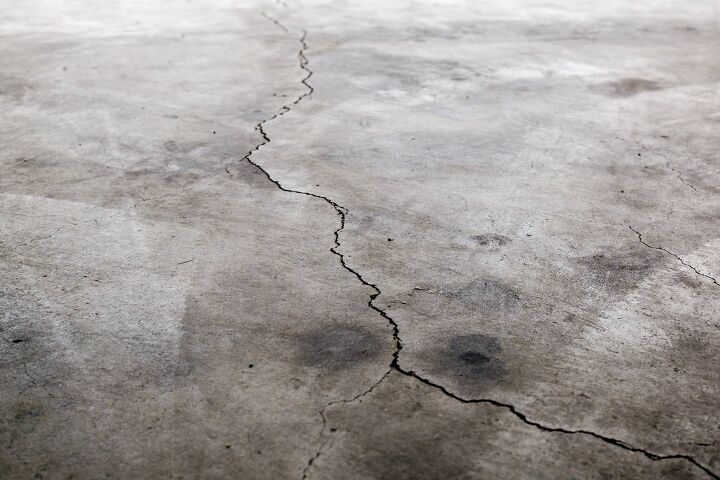






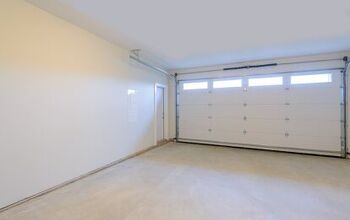
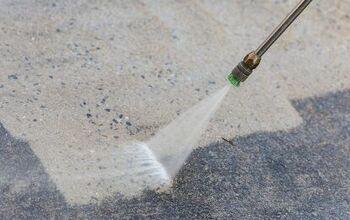
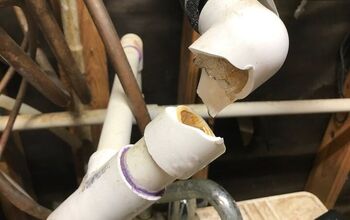
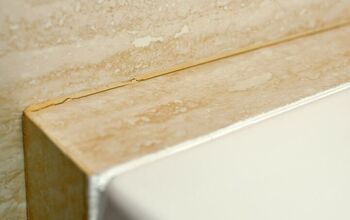
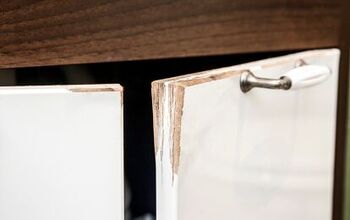



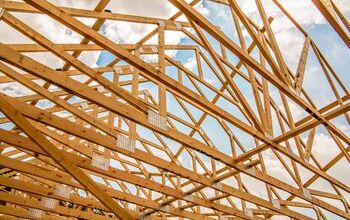

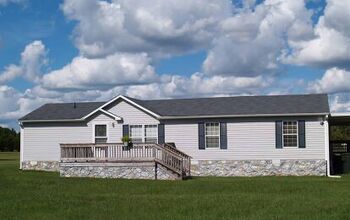
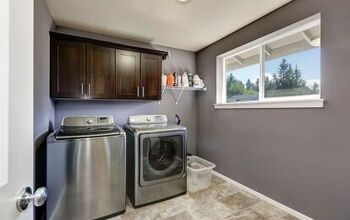


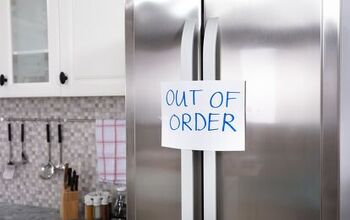
![Standard Dining Room Table Dimensions [for 4, 6, 8, 10 and 12 People]](https://cdn-fastly.upgradedhome.com/media/2023/07/31/9074335/standard-dining-room-table-dimensions-for-4-6-8-10-and-12-people.jpg?size=350x220)

